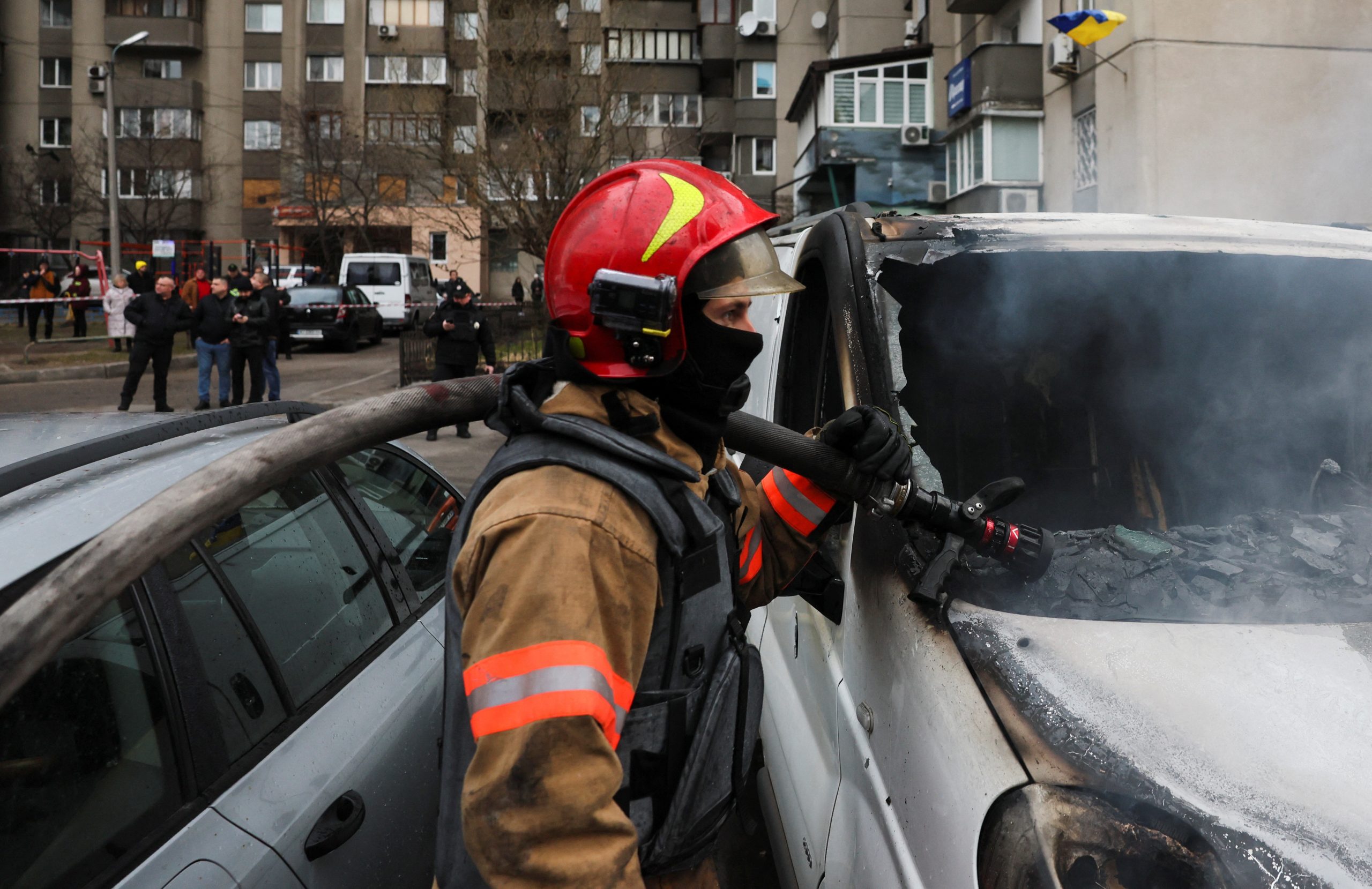
Chris Lange, FISM News
[elfsight_social_share_buttons id=”1″]
At least nine people were killed Thursday night in Russian missile strikes throughout Ukraine that damaged critical infrastructure and cut off power to Europe’s largest nuclear plant for the sixth time since the invasion, according to reports from the Ukrainian military.
Ukraine’s military said Russia fired 81 missiles across 10 cities, from Kharkiv in the north, Zhytomyr in the west, Odesa in the south, and the capital city of Kyiv, in its largest attack in weeks, according to The Associated Press and BBC News reports.
The military said it shot down 34 cruise missiles and four of the eight Iranian-made Shahed drones which were fired. This was at least the second time Shaheds were used following reports last week that Moscow had depleted its supply.
Ukrainian President Volodymyr Zelensky said it was “a difficult night” and that Russia had resumed its “miserable tactics.”
“The occupiers can only terrorize civilians. That’s all they can do,” Zelenskyy said in an online statement.
He said energy systems were being restored and all services were working after the “massive” rocket attack struck critical infrastructure and residential buildings.
Kyiv’s mayor, Vitaly Klitschko, said cars were burning in the courtyard of a residential building in the city and that residents were urged to stay in shelters. Four in 10 households in the capital city are without power, he said.
NUCLEAR POWER STATION LOSES ‘LAST LINK’ TO POWER SYSTEM
Ukraine’s nuclear energy operator Energoatom said a strike at the Zaporizhzhia nuclear power plant cut off the “last link” between the facility and Ukraine’s power system. The Zaporizhzhia plant, Europe’s largest nuclear power station, has been teetering on the brink of disaster since it was seized by Russia more than a year ago.
For the sixth time since the invasion, the nuclear power station is operating on backup diesel generators which are only able to provide around 10 days of power to keep cooling systems operational and avoid a meltdown.
International Atomic Energy Agency (IAEA) Chief Rafael Grossi once again found himself cast in the role of trying to avert a widespread catastrophe. He again called for a commitment from both sides to protect the safety of the plant and said that he was “astonished by the complacency” about the potential for a nuclear disaster.
“Each time we are rolling a dice. And if we allow this to continue time after time then one day our luck will run out,” Grossi said.
KREMLIN SAYS NORD STREAM ATTACKS REQUIRED STATE SUPPORT
Kremlin spokesman Dmitry Peskov told reporters Thursday that it is unlikely that September’s Nord Stream natural gas pipeline explosions last September could have been carried out without state support.
Peskov’s comments followed a New York Times report that U.S. intelligence officials believe the explosions were acts of sabotage carried out by a pro-Ukrainian group not linked to Kyiv’s government.
“As for the pro-Ukrainian angle, you know, the idea that some Dr. Evil organized it, that’s hard to believe. It was too difficult a task, which probably only a well-trained special state service was capable of — and there are not too many of them in our world,” Peskov said when asked about the report.
Russia has repeatedly asked to be allowed to join the investigations into the blasts, which ruptured three of the four pipelines of the Nord Stream 1 and 2 gas links that connect Russia to Germany under the Baltic Sea.
Investigators in Denmark, Germany, and Sweden are currently conducting separate probes.
“We continue to demand a quick and transparent investigation, we continue to demand that we be allowed to take part in this investigation,” Peskov told reporters at a regularly scheduled briefing.
“It is necessary to identify who executed it and who ordered it. Committing a terrorist attack against a piece of critical international energy infrastructure is too dangerous a precedent,” he added.
Peskov called the West’s previous allegations that Russia carried out the attacks on its own infrastructure an “absurd hypothesis.”
